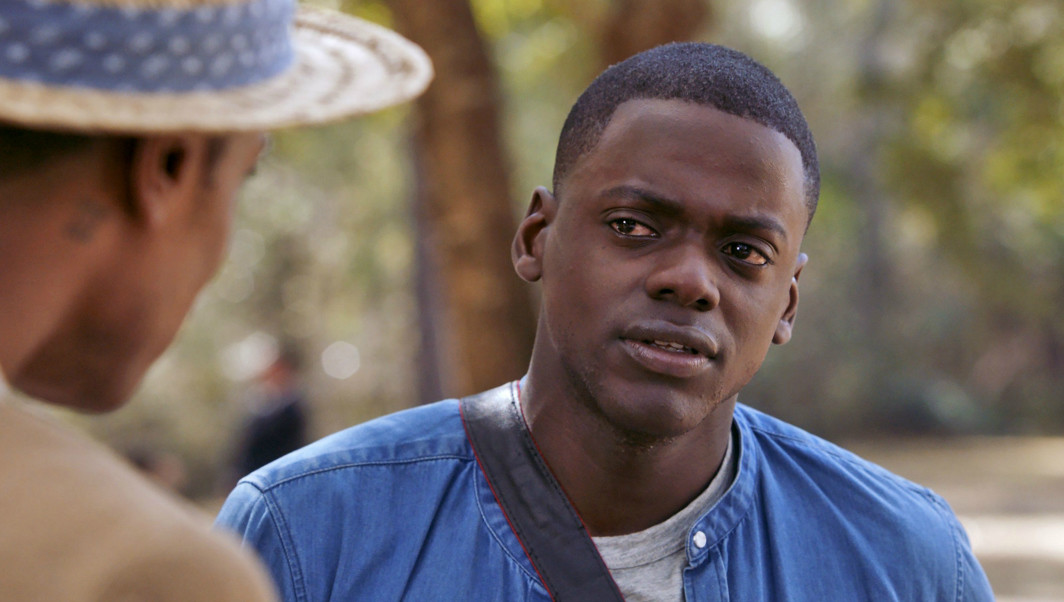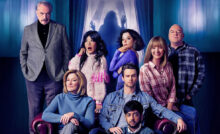Why Jordan Peele Set the New Standard for Thrillers with Get Out


in Get Out (Photo Credit: )
There has been a lot of buzz about Jordan Peele these past few weeks and it’s not because of his comedy. The actor best known for MADtv and Key & Peele (the sketch comedy series he co-created with Keegan-Michael Key) recently made his directorial debut with the film everyone is raving about, Get Out. The film tells the story of Chris Washington (Daniel Kaluuya), an African American man, as he and his Caucasian girlfriend Rose Armitage (Allison Williams) visit her family for the first time. After some eerie encounters with the family’s maid and keeper, Georgina (Betty Gabriel) and Walter (Marcus Henderson), Chris begins to sense something isn’t right with his girlfriend’s family and he may be in grave danger. Although the film has received acclaim from critics and has grossed over $155 million worldwide, some are unhappy with the film going as far as claiming it’s “racist” and “anti-white.” The question is, are these disgruntled viewers angry because the film truly is discriminatory or because they’re burdened by their own complacency?
Thrillers are characterized by specific reactions they elicit which include suspense, discomfort, anxiety, and shock. For a thriller to be successful, the viewer must directly engage with the narrative and allow it to question his or her’s sanity and perception. What Get Out does exceptionally well is question our morals and intentions when interacting with those who are different than us. Peele was successful in creating a film that deals with racism in a way that is satirical, but still chillingly relatable. For example, when prepping Chris for his first meeting with her parents, Rose tells him her father Dean (Bradley Whitford) would have “voted for Obama for a third term if he could.” She mentions this to assure Chris that her father isn’t racist, but the audience knows this is a ridiculous and uncomfortable justification. These moments are uncomfortable because the Armitage family doesn’t think their behavior is wrong – they’re completely blinded by their own complacency to recognize they’re a threat. People often go to the movie theater for entertainment, to escape the realities of the “real world.” Although Get Out is a piece of fiction, it exploits the “real world” far too well. The result is the audience feels no sense of escape but rather, a feeling of uneasy awareness.
The Armitage family uses Chris’ vulnerabilities and insecurities to take him to the “sunken place”, a state of mind in which he has absolutely no control of his surroundings. Although he manages to save himself with his quick thinking, there are many moments we fear the Armitage family will be successful in taking advantage of Chris’ helplessness. One of those moments is when Chris’ best friend Rod arrives in a TSA police car. Before we realize it’s Rod in the police car, all we see and hear is police sirens. Our hearts sink because we fear the police officer will frame Chris as the threat, rather than the victim. This fear stems from the reality of white privilege, police brutality, and undeniable bias. We suddenly get hit with the realization that although Chris is the protagonist and we are rooting for his survival, his biggest threat is the fact that he’s an African American in a white man’s world.
What differentiates the thriller genre from the horror genre is that thrillers often deal with fears that are palpable and immediately accessible, or in other words, realistic. Get Out forces viewers to realize that the attitudes the Armitage family have towards Chris, and African American people in general, are not as far-fetched as they’d hope. Viewers cannot leave the theater with a sense relief because what they just watched on screen is fiction and that threatens their perception of society. When you force people to accept something they try so hard to deny, you know you’ve created powerful art and that’s exactly what Peele did with Get Out.
Photo Credit: Universal Pictures
Recent Posts
Win Tickets to a NYC Screening of A Working Man
Pop Culturalist is excited to be partnering with Amazon MGM Studios to give away tickets…
Exclusive Interview: How The Parenting’s Dean Norris Took That Scene to the Next Level
Craig Johnson’s The Parenting delivers the perfect blend of horror and hilarity, turning a classic…
Exclusive Interview: Director Craig Johnson and Writer Kent Sublette on Balancing Horror, Comedy, and Heart in ‘The Parenting’
Meeting the in-laws is stressful enough—throw in a 400-year-old poltergeist, and things go completely off…
SXSW 2025: Florence Hunt and Rory Walton-Smith on ‘Mix Tape,’ First Love, and Their Artistic Process
First love is unforgettable. It leaves an imprint, shaping the way we see the world,…
SXSW 2025: Why ‘F*ckUps Anonymous’ Is More Than Just a Show—Joe Tierney, Katrina Whalen, Sarah Jeffery & Andrew Michael Fama on Giving a Voice to the Voiceless and the Power of Storytelling
Television has the power to do more than entertain—it can challenge, heal, and transform. Some…
SXSW 2025: Siobhan McCarthy, Misha Osherovich, and Nico Carney on Reclaiming Comedy Classics with Trans Inclusion in ‘She’s the He’
Comedy classics like Mean Girls, She’s the Man, and Clueless have shaped generations with their…


